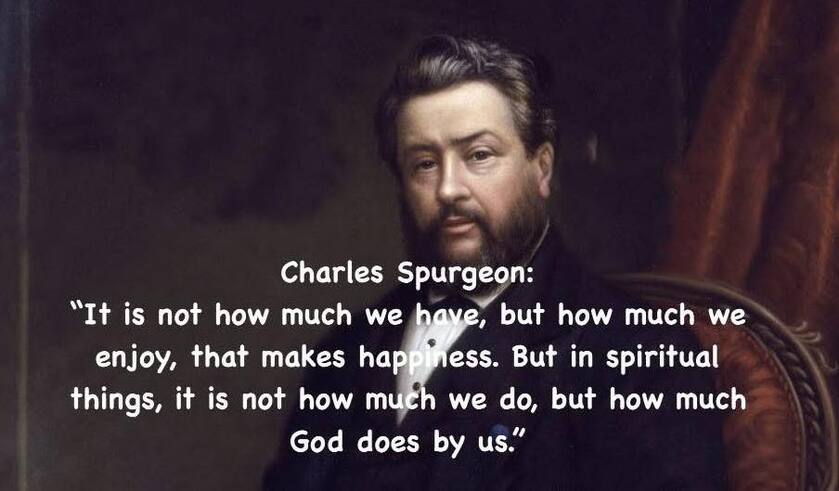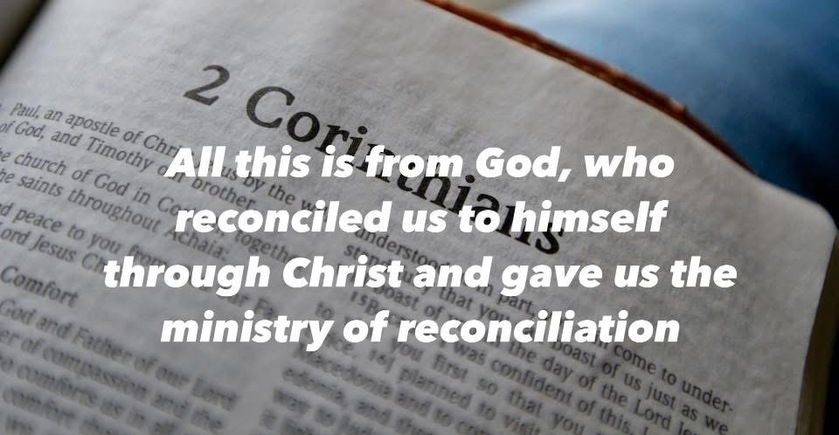From Chains to Commission: How God’s Whisper and a Bold Name Change Ignited the Greatest Missionary
Acts 12:17
"But motioning to them with his hand to be silent, he described to them how the Lord had brought him out of the prison. And he said, "Tell these things to James and to the brothers." Then he departed and went to another place."
As far as God is concerned, it was not yet the day and hour for Peter to give his life and go home to the Lord. God's not through with him quite yet. For now this is the last we'll hear of him in the book of Acts, until Peter reemerges briefly in Acts 15 at the Jerusalem Council. There, he speaks powerfully about God’s inclusion of the Gentiles, affirming that salvation comes through grace, not law (Acts 15:7-11). After that council, Peter isn’t mentioned again in Acts, symbolizing the transition of leadership and the expanding gospel mission. But later we'll hear from him in his epistles.
In Acts 12, Herod’s persecution claimed James (Acts 12:2), but Peter was spared, not by coincidence, but by divine intervention through angelic rescue and the church’s prayers. This resonates with Ecclesiastes 3:1-2, reminding us that there’s "a time to be born and a time to die." Peter’s later role in Acts 15 shows how God used him to bridge the early church’s debates on Jewish-Gentile unity, emphasizing that "we believe it is through the grace of our Lord Jesus that we are saved, just as they are" (Acts 15:11).
This shift in Acts also highlights the collaborative nature of God’s kingdom work. Peter hands the baton to others like Paul and James (Jesus’ brother), who presides over the Acts 15 council. It’s a beautiful picture of how God weaves individual stories into His larger tapestry.
As we continue our journey through Acts, we see the church in Antioch emerging as a vibrant center of faith, diverse in leadership and united in purpose. And the church is being built upon the shoulders of James [half-brother of Jesus), Barnabas, Simeon who was called Niger, Lucius of Cyrene, Manaen a lifelong friend of Herod the tetrarch, and Saul [Paul] (Acts 13:1). And these men were teachers and prophets. And to be honest, I don't think any church start has any hope if it's not a project that is supported and founded by those God gifts with prophecy and teaching.
Acts 13:2-3
"While they were worshiping the Lord and fasting, the Holy Spirit said, "Set apart for me Barnabas and Saul for the work to which I have called them." Then after fasting and praying they laid their hands on them and sent them off."
The Holy Spirit initiates the first intentional missionary outreach, setting the stage for the gospel’s expansion beyond Jerusalem and Judea. But how exactly? The verse only says, "the Holy Spirit said". Acts 13:1 lists the Antioch leaders as "prophets and teachers," setting the stage for prophetic activity. The Spirit likely spoke through a prophetic utterance from one of these individuals. And maybe it's best they don't chronicle who so that we focus instead on the Spirit's work and not the vessel through which He spoke. In this way the focus remains on the divine Source, not the human spirit. This anonymity prevents idolization of personalities and directs all glory to God, echoing themes throughout Scripture where the messenger fades into the background to exalt the Message. And frankly that's the way it must be, the Source should always be the focus. Christ is who we advocate for, not our ministry, not our church, not ourselves.
Scripture often portrays the Holy Spirit speaking in ways that emphasize His sovereignty over human instruments. In the Old Testament, prophets like Isaiah or Jeremiah delivered words from God without always drawing attention to themselves. In the New Testament, the Spirit’s voice of truth in Acts comes through diverse means; visions (Acts 10:9-16 for Peter), direct words (Acts 8:29 to Philip), or communal prophecy (as is the case here). Another explanation could be the Spirit's utterance could have been spontaneous, recognized by all as from the Spirit due to their shared attuned hearts during worship and fasting. Imagine the profound impact on these men if they all heard the same inner voice giving identical messages to them all. By not chronicling the "who," Luke (the author of Acts) ensures we marvel at the Spirit’s initiative in launching the church’s missionary era, rather than fixating on a single prophet. It also models humility for us: vessels are replaceable, but the Spirit’s work is irreplaceable.
In a culture that elevates influencers and leaders, this passage reminds us to celebrate God’s actions over human charisma. The credit goes to the Spirit, as it should, and fosters unity and reduces ego in the ministry. Sometimes, God withholds details to deepen our faith and dependence on Him. It encourages those serving "behind the scenes" that their obedience matters eternally. Your actions done in faith don't require viral infection, and personal branding, in order to achieve God's glory. True ministry thrives on divine initiative, not human acclaim. And we'll see that going forward in the story about a Jewish false prophet, a magician named Bar-Jesus (Acts 13:6).
In an age fixated on influencers and self-promotion, the narrative urges us to center on God’s initiative, where true impact flows from the Spirit’s leading rather than personal branding or viral reach. Obedience, even in obscurity, echoes eternally, as God uses it for His glory without needing human fanfare.
This sets the perfect stage for the encounter with Bar-Jesus (also called Elymas), illustrating how divine truth confronts counterfeit power head-on. Fresh from their commissioning in Antioch (Acts 13:2-3), Barnabas and Saul [Paul] (accompanied by John Mark) set sail for Cyprus, Barnabas’ homeland. Empowered by the Holy Spirit, they proclaim the word of God in synagogues along the way (Acts 13:4-5). Arriving in Paphos, the island’s capital, they encounter Sergius Paulus, the Roman proconsul, a man of influence eager to hear their message.
"The proconsul, an intelligent man, sent for Barnabas and Saul because he wanted to hear the word of God. But Elymas the sorcerer (for that is what his name means) opposed them and tried to turn the proconsul from the faith." (Acts 13:6-8, emphasis mine)
Elymas the sorcerer embodies deception, blending Jewish heritage with occult practices forbidden in Scripture (Deuteronomy 18:10-12).
Filled with the Holy Spirit, Saul confronts him directly:
Acts 13:10
"You are a child of the devil and an enemy of everything that is right! You are full of all kinds of deceit and trickery. Will you never stop perverting the right ways of the Lord?".
Elymas is struck blind temporarily, leading the astonished proconsul to believe,
"amazed at the teaching about the Lord" (Acts 13:12).
And now Saul takes the name "Paul" in the narrative.
Why?
No reason given. Not like other renaming's in the Bible. No divine intervention or revelation. Historical and biblical evidence indicates that he possessed two names from birth: Saul, was his Hebrew/Jewish name (reflecting his Benjamite heritage and pride in his Jewish roots, as noted in Philippians 3:5), and Paul (Paulus in Latin), was his Roman name, which was common for Roman citizens like him born in Tarsus, a Roman city. So maybe it was simply how he wanted to identify himself. This dual naming was a cultural norm in the Greco-Roman world, especially for Hellenistic Jews navigating both Jewish and Gentile cultures. As he moved into Roman and Greek-speaking territories to proclaim the gospel, using his Roman name "Paul" made practical sense, it was more relatable and accessible in those cultures. This approach embodies his principals to become "all things to all people" for the sake of evangelism, (1 Corinthians 9:19–23). It's likely that Luke adopted this approach in his writing to reflect Paul's deliberately humble personal views.
At any rate, this episode launches Paul’s missionary journeys, showcasing the clash between God’s truth and the many satanic counterfeits, while fulfilling the Spirit’s call to reach Gentiles with the Gospel.
Reflect on how you can become "all things to all people" this week, perhaps adjusting your approach to connect with someone unlike you. If opposition arises in sharing faith, shake off the dust and move forward, trusting the Spirit to launch new opportunities. Whatever comes, in facing counterfeits; be it false teachings or cultural pressures, emulate Paul’s boldness, proclaim truth relationally, adapt wisely, and persevere with joy amid all the pushback.
Prayer:
Heavenly Father, thank You for Paul’s example of humble adaptability in advancing Your gospel. Help us confront deceptions with truth, proclaim Jesus boldly, and turn to new horizons as Your Spirit leads us. Fill us with joy in trials, and use us to reach the nations for Your glory.
In Jesus’ Holy name, Amen.
Charles Spurgeon:
"It is not how much we have, but how much we enjoy, that makes happiness. But in spiritual things, it is not how much we do, but how much God does by us."




















